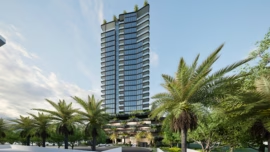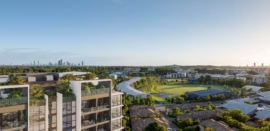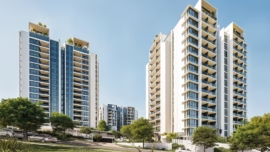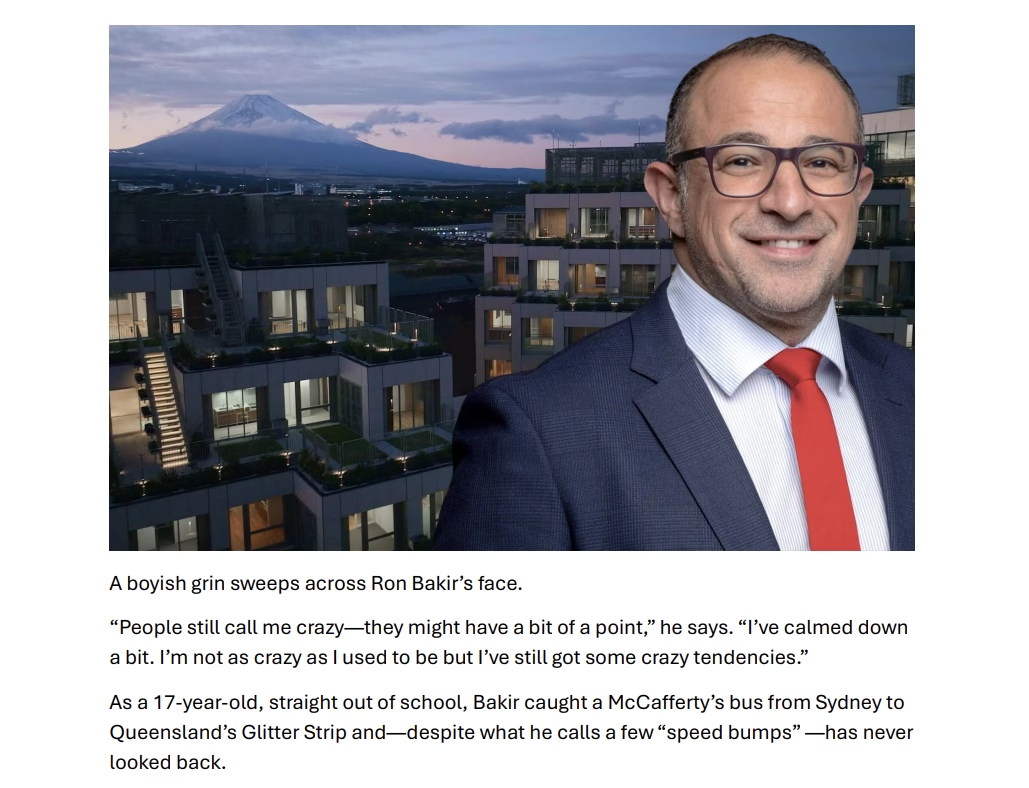
The Urban Developer: Ron Bakir
There can be no denying, having not only made a name for himself but then reinvented and resurrected himself in the ensuing years, there is a well-honed method to his entrepreneurial madness.
“There’s always obstacles,” he says. “Nothing runs to plan. Nothing’s perfect, right? There’s always speed bumps.
“We had a lot of issues. I mean, what did I know at 17? I wish I knew back then a quarter of the things I know today. But you’re always learning. You’ve just got to push through … and when you find something you love, you’re passionate about and really want to do from the heart, you’ve got to take that path.
“My parents always said to me, do the right thing because karma will always catch you, have a clear vision because if you can’t see it then nobody else bloody can, and believe in yourself. They’re the three things I’ve lived by all my life and that’s what I do.”
In 2004, as his Crazy Ron’s mobile phone retail empire was crumbling around him following the loss of a bitter legal stoush against rival Crazy John’s, he took a fortuitous detour into property development and founded Homecorp.
“I love property, absolutely love it,” Bakir says. “When I was doing the mobile phones, I was always investing in property. Then around the end of 2003 I built a duplex at Royal Pines and I remember when I completed it thinking ‘This is what I’m meant to do, create this stuff and create it on a bigger scale’.”
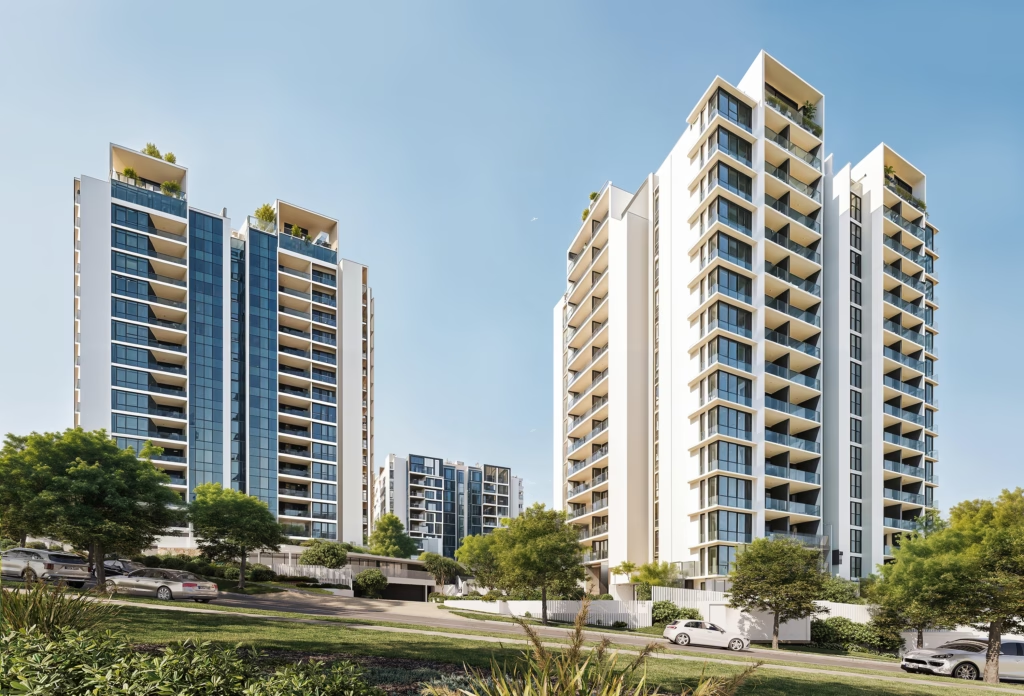
Fast forward a couple of decades, Homecorp has 3000 homes on its books at various stages of development across Queensland, News South Wales and South Australia. And by the end of the year it will have re-entered the Victorian market for the first time since the GFC and put shovels to dirt.
“We’ve got a plan to 2030-2031 to grow our portfolio aggressively around the country,” Bakir says. “We’ve locked up a number of sites now and, over and above that, we’ve got a number of sites that are under due diligence.”
Only about 20 per cent of the Homecorp workbook at the moment is apartments—the majority being house-and-land product—but that’s about to change.
“Part of our strategy going forward is to pivot the business into more medium-density type product, which will be both build-to-sell and build-to-rent,” the Homecorp chief executive says. “As well, we’ll be growing our property management arm. But Bakir adds that although the company’s eyes are on the horizon, the Gold Coast will remain an “absolutely critical market for us”.
“This is phenomenal city. It’s been a great city for me and I love it in every way, shape and form … until now it’s been so undervalued for so long and we will be aggressively playing a part in reshaping the skyline here.”
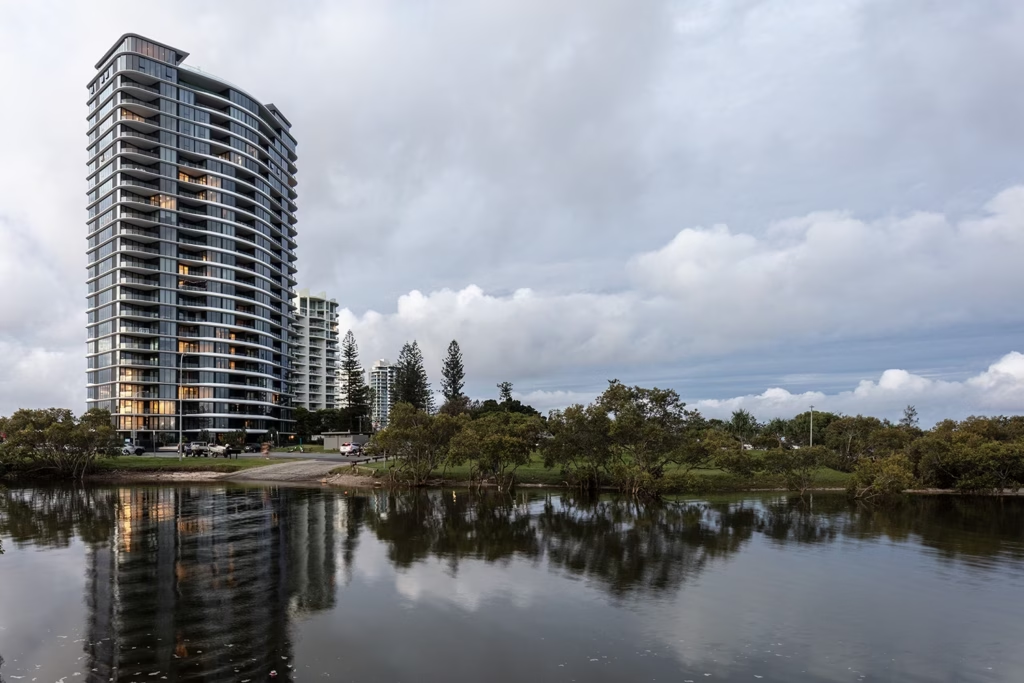
Last month, Homecorp completed its $270-million, 25-storey Eve Residences tower with 157 apartments overlooking the Gold Coast Broadwater at Labrador. Construction has now started on the $250-million second stage of its Cienna Varsity Ridge project comprising 289 apartments across two towers rising 12 and 14 storeys at Varsity Lakes, near Robina.
Key to Homecorp’s expansion strategy is the company’s developer-builder model—its building arm Homecorp Constructions was established in 2014, well ahead of the post- Covid industry curve—as well as its powerhouse partnership coup with Japan’s Prime Life Technologies.
A joint venture of Japanese giants Toyota Motor Corporation and Panasonic, the Tokyo- based company bought a 51 per cent controlling stake in Homecorp Constructions in 2018. Its subsidiaries include Misawa Homes, which has built more than 1.3 million homes.
“We were actively looking for capital … and at the same time they were looking for investment into Australia,” Bakir says. “We met them, struck up a good relationship and they decided we were the right partner for them.”
The deal, he says, was “a long time in the making”—musing that the negotiations involved many renditions of his go-to karaoke song, Elvis Presley’s Can’t Help Falling in Love.“It was my voice that did it,” he laughs. “But no, seriously, I tell you it’s one of the best things I’ve done for our company— they’re very honourable, very decent human beings to deal with and they share the vision so it’s a great partnership.
Not only that, it has given Homecorp a portal to the future of property development.
Prime Life Technologies partner Toyota is behind the creation of the futuristic Woven City at the base of Mount Fuji, a prototype masterplanned community powered by hydrogen fuel cells. It is pushing the envelope of urban tech and autonomous mobility, including plans for a fleet of eVOTLs—electric vertical take-off and landing aircraft—to provide an air taxi service to Tokyo.
The first 100 residents are due to move into the $15-billion “living laboratory” of innovative urban design in coming months and together with its later stages it will eventually accommodate 2000 people. Toyota’s vision is to redefine urban living on the 70ha site through the integration of cutting edge sustainability practices and technology, including artificial intelligence, advanced robotics, autonomous vehicles, smart homes and a state-of-the-art digital operating system designed to streamline urban infrastructure.
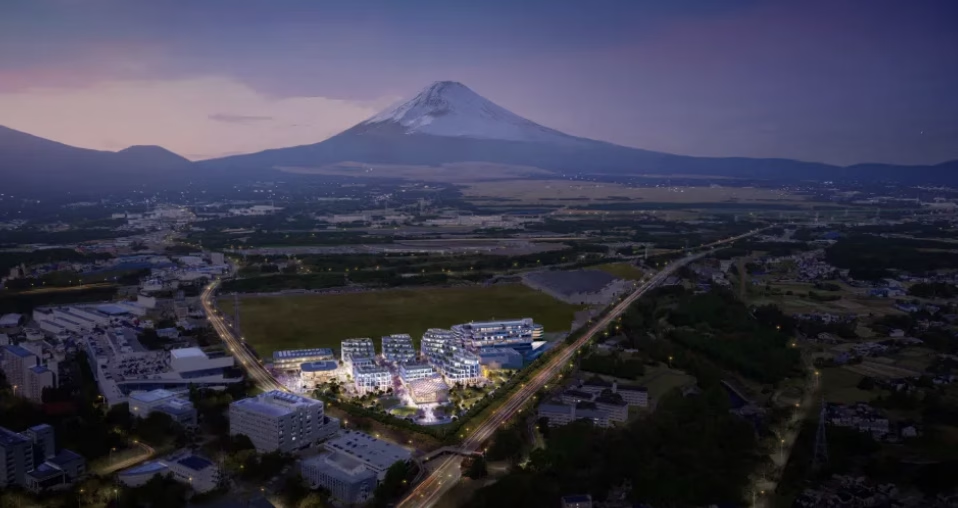
Bakir says the future is now at Woven City and Homecorp has had initial discussions with its Japanese partner on how the concept and technologies could be integrated into the Australian housing market.
“We’ve already got a whole research team working with Japan on what the future looks like and what sustainability practices and technology we can utilise or prototype and trial in Australia from this new urban ecosystem,” he says. “But nothing happens overnight—it’s a process.”
Meanwhile, on the local development front line, there are significant prevailing challenges to overcome—construction costs that keep rising, skilled labour shortages, sticky inflation, economic uncertainty and market volatility.
“It’s a very challenging, complex and unique marketplace … it’s hard to predict,” Bakir says.
“Fundamentally, however, we’ve got a housing shortage in Australia and if you can find a way to deliver the right product in the right location at the right price you’ll do very well.
“So, I think it’s really a matter of setting the path and just bloody getting on with it … but you’ve got to be cautious, prepare for the worst and have a contingency plan.”
Sounds like a karaoke song cue, Ron. “Wise men say, only fools rush in…


